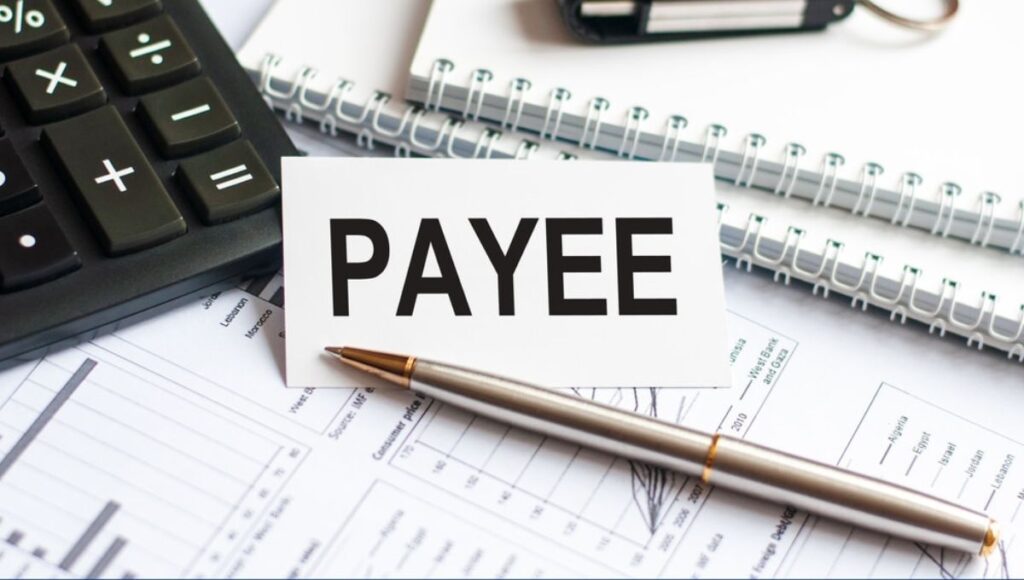Dealing with finances can be a real headache, especially if you’re responsible for managing someone else’s money. That’s where representative payee accounts come into play.
But what exactly are they, and which banks offer these special accounts? Buckle up, friend, because we’re about to dive into the nitty-gritty of representative payee bank accounts.
What Is A Representative Payee Bank Account?
Let’s start with the basics. A representative payee bank account is a type of account designed specifically to receive and hold funds for someone who gets benefits from the Social Security Administration (SSA).
It’s usually a checking account managed by a representative payee – either a person or an organization appointed to help handle benefit payments for the beneficiary.
The representative payee uses this account to accept benefit checks from the SSA and then uses that money to pay for the beneficiary’s needs, like rent, utilities, and groceries.
They also have to keep track of all the transactions in and out of the account, because the SSA may ask for a report to make sure the funds are being used properly.
What Is A Representative Payee?
A representative payee can be an individual or an organization, and they’re appointed by the SSA to manage a beneficiary’s benefits.
It’s a big responsibility because they have what’s called a “fiduciary duty,” which means they’re legally required to manage the funds in the best interest of the beneficiary. In most cases, a representative payee is a family member.
Who Needs A Representative Payee?
Beneficiaries who typically need a representative payee are older or disabled people who have little to no income and can’t meet their basic needs on their own. There are strict rules about what a representative payee account can and can’t do with the money.
For example, they can’t pay themselves for assisting the beneficiary. Instead, the benefits must be budgeted for day-to-day living expenses, like food, clothing, and shelter.
Whether or not a beneficiary needs a representative payee is usually determined when they apply for Social Security benefits. If they’re eligible, they can let the SSA know who they’d like to be their payee. But ultimately, the SSA makes the final decision and sends a letter appointing the person or organization.
It’s important to note that there are income and asset limits to qualify for SSI benefits, and representative payees need to be extra careful to ensure the beneficiary’s account doesn’t exceed those limits. If it does, the beneficiary could risk losing their benefits or having them reduced.
More About Representative Payee Bank Accounts

A representative payee bank account isn’t all that different from a standard checking or savings account. The main difference is that the representative payee’s name is specifically listed as the one authorized to manage the account, even though the account itself belongs to the beneficiary.
“They’re basically checking accounts,” says Mary Anne Ehlert, a Certified Financial Planner and founder of Protected Tomorrows, a financial planning firm focused on helping families with disabilities. “The account would have the beneficiary’s Social Security number attached to it and the representative payee’s name as well.”
The representative payee’s name is noted so the bank knows they’ve been appointed to administer the account. This setup also makes it easy for payees to automate expenses like rent or utility bills for the beneficiary.
You can open these accounts at most big banks, although some smaller community banks or credit unions may not offer them.
As for managing the account, the representative payee’s main job is to make sure the beneficiary’s money is spent correctly – that it’s used to pay bills and living expenses, and not much else.
“[Payees] can only use the money for the benefits of the beneficiary, such as paying for food, clothing, and shelter,” says Cynthia Haddad, co-founder of Special Needs Financial Planning. “The money is meant to be used for that person’s care.”
And to make sure payees are doing their job, the oversight agencies may check in from time to time by sending a letter asking for a transaction record. While a full-blown audit is unlikely, an agency could decide to investigate further if it feels the transaction records are incomplete.
If beneficiaries suspect their representative payee is taking advantage of them or not managing the account properly, they can (and should) call the SSA immediately. If payees misuse funds, they’ll have to repay that money, or they could face criminal prosecution.
Considerations For Representative Payees
Being a representative payee comes with some serious responsibilities. Here are a few key things payees should keep in mind:
- Oversight: As mentioned, oversight agencies may request a record of transactions from a payee. Federal law charges each individual state with monitoring the representative payee system and investigating potential violations.
- Spend it, don’t save it: A beneficiary’s money must be spent – it can’t (or shouldn’t) be saved. If funds are piling up in the beneficiary’s account, it sends a signal to the SSA that the money isn’t needed, and it could lead to the beneficiary’s benefits being reduced or withdrawn completely. “The beneficiary doesn’t want to save it, because that means they may not need it,” says Haddad.
- Use ABLE accounts: Achieving a Better Life Experience (ABLE) accounts can be important tools for beneficiaries and payees. They function much like 529 plans, and total annual contributions can’t exceed $16,000. So, if a beneficiary does have money to “save,” stashing it in an ABLE account may be the best way to keep it on hand without sending the wrong signal to the SSA.
What Does A Representative Payee Do?
In a nutshell, a representative payee manages benefit payments for beneficiaries of Social Security or Supplemental Security Income (SSI). They’re required to use those payments for the needs of the beneficiary and to act in their best interests.
Their Duties Include:
- Determining the beneficiary’s needs
- Using the payments to meet those needs
- Saving any money left after meeting the beneficiary’s current needs in an interest-bearing account
- Reporting changes or events that could affect the beneficiary’s eligibility
- Keeping records of payments received and how the money was spent or saved
Do Representative Payees Receive A Fee For Services?
Nope, individuals are never approved by the SSA to collect a fee for being a representative payee. The one exception is that some organizations may be allowed to collect a fee from a beneficiary’s monthly payment for providing services, but this has to be approved in writing.
The Bottom Line
Representative payee bank accounts are used by a representative payee to pay bills and other expenses for a beneficiary who receives Social Security or SSI funds. Their job is to make sure the beneficiary’s living expenses are paid with the money in the account, and they must keep a record of all the account’s transactions.
These accounts are more or less the same as a standard checking account, but they include specific language detailing the representative payee’s role in managing it. You can find these accounts at most large banks.
Finding The Right Bank For Your Representative Payee Account

Not all banks offer representative payee accounts, so it’s important to do your research and find a reputable institution that meets your needs. Here are a few things to consider when choosing a bank for your representative payee account:
Reputation
Look for a bank with a solid reputation and a track record of excellent customer service. You’ll want to work with a bank that values transparency and accountability, especially when it comes to managing someone else’s finances.
Accessibility
Consider how accessible the bank is for both you and the beneficiary. Are there branches conveniently located near you? Do they offer online banking and mobile apps for easy account management?
Features
Evaluate the features and services offered by the bank. Do they provide the tools and resources you need to effectively manage the representative payee account? Look for things like automated bill pay, detailed transaction records, and dedicated support for representative payees.
Fees
Be aware of any fees associated with the account, such as monthly maintenance fees or transaction fees. Some banks may offer fee waivers or discounts for representative payee accounts, so be sure to ask about these options.
Navigating The Representative Payee Process
Becoming a representative payee can be a complex process, but it’s important to ensure the beneficiary’s financial needs are met and their funds are managed responsibly. Here are a few tips to help you navigate the process:
Understand your responsibilities
As a representative payee, you have a legal and ethical obligation to act in the beneficiary’s best interests. Take the time to understand your duties and responsibilities, as well as the potential consequences of mismanaging funds.
Keep detailed records
Maintaining accurate and detailed records of all transactions, expenses, and account activity is crucial. This documentation will not only help you manage the beneficiary’s finances more effectively, but it will also be necessary if the SSA requests an accounting report.
Communicate openly
Establish open lines of communication with the beneficiary (if possible) and any other relevant parties, such as family members or caregivers. This can help ensure everyone is on the same page and that the beneficiary’s needs are being met.
Seek support
Don’t hesitate to reach out for support or guidance if you have questions or concerns. The SSA and organizations like the National Alliance for Caregiving can provide valuable resources and information for representative payees.
Common Questions About Representative Payee Accounts
As you navigate the world of representative payee accounts, you may have a few burning questions. Here are some common ones, along with straightforward answers:
Can A Representative Payee Have More Than One Account?
Yes, a representative payee can manage multiple accounts for different beneficiaries. However, they must keep separate records for each account and ensure the funds are not commingled.
What Happens To The Account If The Beneficiary Passes Away?
If the beneficiary dies, the representative payee must notify the SSA immediately. Any remaining funds in the account must be returned to the SSA for proper distribution.
Can A Representative Payee Use The Account For Their Own Expenses?
No, a representative payee is strictly prohibited from using the beneficiary’s funds for their own personal expenses. The account and its funds must be used solely for the benefit of the beneficiary.
What If The Representative Payee And The Beneficiary Have A Disagreement?
If there is a disagreement or conflict between the representative payee and the beneficiary, either party can request a change in payee from the SSA. The SSA will review the situation and make a determination based on the best interests of the beneficiary.
Read This Post
Real-Life Examples: Representative Payee Accounts In Action
To better understand how representative payee accounts work in practice, let’s look at a couple of real-life examples:
Example 1
Sarah is a 72-year-old widow who receives Social Security benefits. Due to her declining health and cognitive issues, her daughter, Emily, has been appointed as her representative payee. Emily opens a representative payee account at their local bank and uses the funds to pay for Sarah’s assisted living facility, medical expenses, and other necessary costs.
Example 2
Michael is a 32-year-old man with a developmental disability. His parents, who are his legal guardians, have been appointed as his representative payees. They open a representative payee account and use the funds from Michael’s SSI benefits to cover his rent, utilities, and other living expenses, ensuring his basic needs are met.
In both cases, the representative payees are responsible for managing the beneficiaries’ funds responsibly, keeping accurate records, and ensuring the money is used solely for the beneficiaries’ care and well-being.
Tips For Managing A Representative Payee Account Effectively
Being a representative payee is no small task, but with the right approach and tools, you can effectively manage the beneficiary’s finances. Here are some tips to help you stay on top of things:
- Utilize banking tools: Take advantage of online banking, mobile apps, and other tools offered by your bank to streamline account management. Features like automatic bill pay, transaction alerts, and detailed account statements can make your life easier.
- Create a budget: Develop a detailed budget for the beneficiary’s expenses, including fixed costs (rent, utilities) and variable expenses (groceries, medical bills). This will help you allocate funds appropriately and avoid overspending.
- Stay organized: Implement a system for organizing and maintaining records, such as a dedicated folder or digital file for all account statements, receipts, and other documentation.
- Seek professional help: If you’re unsure about managing the beneficiary’s finances or have complex financial situations to navigate, don’t hesitate to seek advice from a qualified financial professional or legal counsel.
- Review regularly: Periodically review the account activity, budget, and the beneficiary’s needs to ensure everything is on track and make adjustments as necessary.
By following these tips and staying diligent in your duties, you can effectively manage the representative payee account and ensure the beneficiary’s financial needs are met responsibly and ethically.
The Role Of Banks In Supporting Representative Payees
Banks play a crucial role in supporting representative payees and ensuring the proper management of beneficiaries’ funds. Here are some ways banks can assist representative payees:
- Dedicated account services: Many banks offer specialized representative payee accounts or services tailored to the unique needs of payees and beneficiaries. These may include features like simplified account opening processes, personalized support, and specialized reporting tools.
- Training and resources: Banks can provide training and educational resources to help representative payees understand their roles, responsibilities, and best practices for managing beneficiary funds.
- Fraud protection: Banks should have robust fraud prevention measures in place to safeguard beneficiary accounts and alert representative payees to any suspicious activity.
- Accessibility: Banks can offer accessible banking options, such as branch locations convenient for both payees and beneficiaries, as well as online and mobile banking tools for easy account management.
- Clear communication: Banks should provide clear and transparent communication about account features, fees, and policies related to representative payee accounts, ensuring payees have all the information they need to manage the accounts effectively.
By working closely with representative payees and offering specialized support, banks can play a vital role in protecting the financial well-being of beneficiaries and ensuring their funds are managed responsibly.
Conclusion
Representative payee bank accounts are essential for managing funds received from Social Security or SSI for beneficiaries unable to handle their finances independently.
These accounts, offered by most major banks, function like standard checking accounts but with the representative payee designated to administer them on the beneficiary’s behalf.
Representative payees have a legal obligation to use the funds solely for the beneficiary’s needs and meticulously record all transactions.
Banks can support payees through dedicated account services, training resources, fraud protection, accessibility options, and clear communication.
By partnering with banks and diligently fulfilling their duties, representative payees ensure beneficiaries’ financial well-being and responsible fund management.
Meet James John, the luminary mind behind FinanceQuasar. With a passion for demystifying finance, James is a seasoned expert dedicated to simplifying complex concepts. His insightful articles illuminate the financial cosmos, guiding readers towards prosperity. Join James on this enlightening journey, as he shares his wealth of knowledge and expertise.







